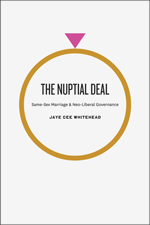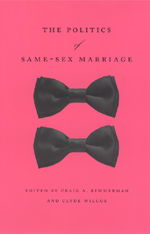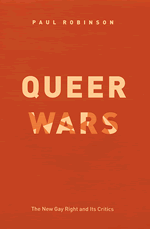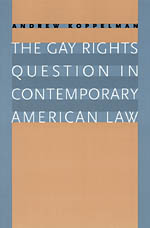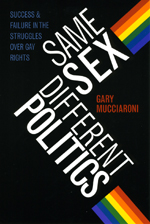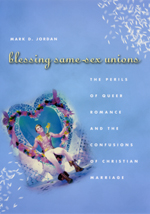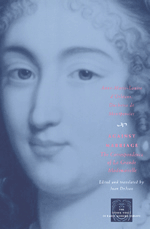A reading list for marriage equality
To better understand the shift in activist politics and policy—from rejection of marriage as an institution to lobbying for same-sex couples’ right to marry—by gay and lesbian rights organizations, read The Nuptial Deal: Same-Sex Marriage and Neo-Liberal Governance by Jay Cee Whitehead.
Whitehead’s argument parallels the transformation that occurred in the minds of activists and ordinary citizens with the rise of neo-liberalism, ultimately arguing that the federal government’s resistance to same-sex marriage stems not from “traditional values” but from fear of exposing marriage as a form of governance rather than a natural expression of human intimacy.
To better grasp the pattern of waxing and waning same-sex marriage has faced in terms of public visibility—and to comprehend how policy cycles and political opportunity have characterized debates since the 1996 passing of the Defense of Marriage Act—read The Politics of Same-Sex Marriage, edited by Craig A. Rimmerman and Clyde Wilcox.
The Politics of Same-Sex Marriage brings together an esteemed list of scholars who consider how court rulings and local legislatures have kept the issue alive in the political sphere, and conservatives and gay rights advocates have made the issue a key battlefield in the culture wars.
To comprehend the role played by the new gay right in shaping the debate, as well as the historical and social conditions that produced a new generation of gay conservatives, read Paul Robinson’s Queer Wars: The New Gay Right and Its Critics.
Robinson explores explores how gay conservatives have rejected the idea that commitment to gay freedom should involve equal dedication to the causes of other marginalized people, be they racial minorities, women, or the poor; why gay conservatives embrace more traditional gender ideals; and why and how gay conservatives support sexual restraint and condemn what they label as promiscuity.
For a historical primer on the second-class legal status of gay and lesbian citizens, read The Gay Rights Question in Contemporary American Law by Andrew Koppelman.
Does antigay discrimination violate the Constitution? Is there any sound moral objection to homosexual conduct? Are such objections the moral and constitutional equivalent of racism? Must state laws recognizing same-sex unions be given effect in other states? Should courts take account of popular resistance to gay equality?
How did the arguments for gay rights shape up against government policy in 2002, and where have we come since?
To sense what’s at stake beyond same-sex marriage rights in the larger struggle for equality, read Same Sex, Different Politics: Success and Failure in the Struggles Over Gay Rights by Gary Mucciaroni, which explores debates over laws governing military service, homosexual conduct, adoption, marriage and partner recognition, hate crimes, and civil rights.
Illuminating the conditions that engender the contradictory policies that shape our lives, Same Sex, Different Politics explains why gay rights advocates have achieved dramatically different levels of success from one policy area to another.
To encounter the reasons behind the opposition of certain Christian churches to blessing same-sex unions, read Mark D. Jordan’s Blessing Same-Sex Unions: The Perils of Queer Romance and the Confusions of Christian Marriage.
Opponents of gay marriage, Jordan reveals, too often confuse simplified ideals of matrimony with historical facts. They suppose, for instance, that there has been a stable Christian tradition of marriage across millennia, when in reality Christians have quarreled among themselves for centuries about even the most basic elements of marital theology, authorizing experiments like polygamy and divorce.
And finally: to read the story of the seventeenth-century Duchesse de Montpensier, a first cousin of Louis XIV, who condemned the alliance system of marriage, proposing instead to found a republic that she would govern, “a corner of the world in which . . . women are their own mistresses,” and where marriage and even courtship would be outlawed, see Against Marriage: The Correspondence of La Grande Mademoiselle by Anne-Marie-Louise d’Orléans (edited and translated by Joan DeJoan).
PS: Her pastoral utopia would provide medical care and vocational training for the poor, and all the homes would have libraries and studies, so that each woman would have a “room of her own” in which to write books.
